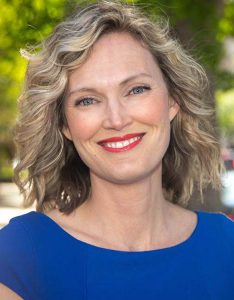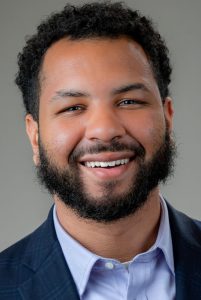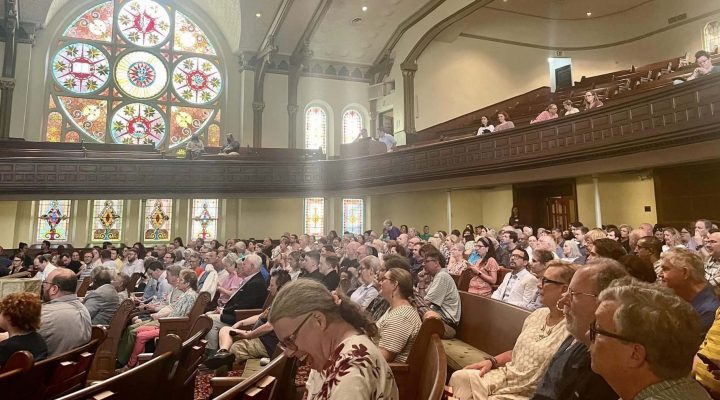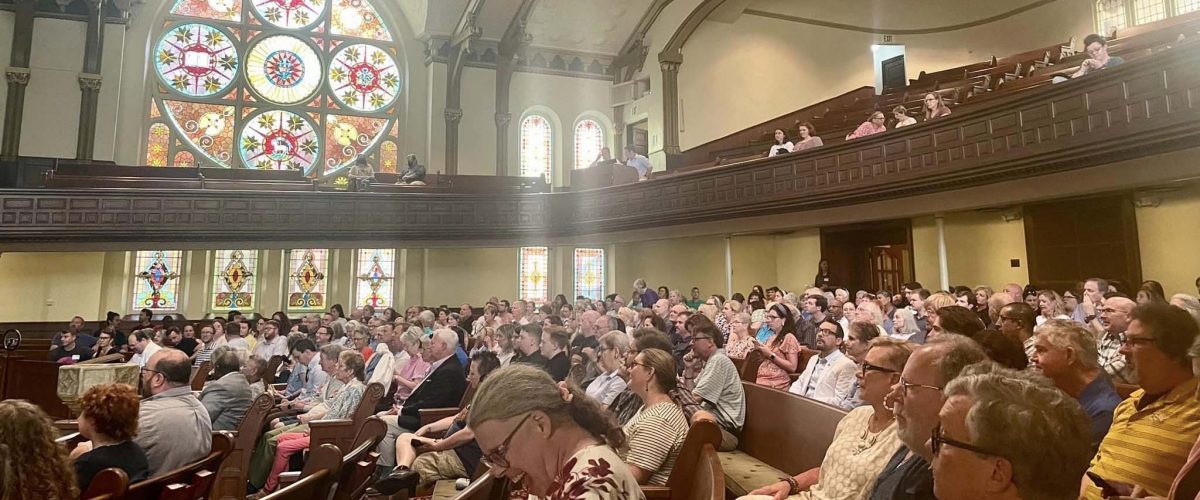Pastors who want to inspire their congregations to social justice action will be more effective when they follow John Wesley’s model to establish relationships with church members and learn their needs, say experienced preachers.
Stephanie Arnold and Kendall L. McBroom agreed that a familiar adage captures the context of social justice ministry: People won’t care what you know until they know you care.
Arnold and McBroom were panelists for the United Methodist General Board of Church and Society’s third “Justice Talks” webinar, “From the Pulpit to the Public Square” Nov. 7.
Based in Washington, D.C., in the United Methodist Building opposite the U.S. Capitol, Church and Society is the United Methodist program board responsible for implementing the social justice policies adopted by the General Conference, the denomination’s top legislative policy.

Stephanie Arnold
Arnold, senior pastor of First United Methodist Church in Birmingham, Ala., and a Church and Society board member, said the world urgently needs United Methodist pastors to follow the example of Methodism’s founder, John Wesley, who got to know the needs of the poor and wasn’t afraid to speak out against the injustices of his day.
“To say we’re living in challenging times is an understatement,” Arnold said. “We face war, efforts to roll back voting rights and LGBTQ rights, chaos in government, the humanitarian crisis at the U.S.-Mexico border, and so much more.”
Arnold said First UMC Birmingham underwent a transformation in 2009 when, as a dying downtown church, it adopted a mission statement to be “an open place for all.” That vision led staff and members into discussions about who was missing from the congregation and who might be included.
“That was an honest conversation about meeting their current downtown context,” said the senior pastor. “Otherwise, the church would have become a historic landmark without a church presence.”
Arnold said she joined First Birmingham as an associate pastor shortly after the new mission statement was adopted.
“When I interviewed for the position, the then-senior pastor told me: ‘You’ll have CEOs and unhoused folks; Black and white; straight and gay people,'” she recalled. “When the church created its mission statement, it was responding to evidence of people’s lives in downtown without a safe place to belong, without a faith community.”
Welcoming all to the church has revitalized the congregation.
Welcoming all to the church has revitalized the congregation, which now numbers 619 members with an average Sunday worship attendance of about 300.
Among the issues on which First Birmingham has advocated have been state legislation affecting LGBTQ rights and potential effects on transgender church members and nonbinary teens in the church’s youth group.
The church advocated for greater awareness of domestic violence after a Birmingham mother was murdered in front of her eight children.
When U.S. Immigration and Customs Enforcement staged a series of raids in Birmingham, a church member who is an attorney helped draft a policy designating First UMC as a sanctuary for undocumented immigrants.
“We tried to look at issues impacting community and take a step toward them,” Arnold said. “Even small decisions begin to move the needle and help us shape our faith and political discourse.”

Kendall McBroom
As Church and Society’s director of civil and human rights, McBroom said both the United States and the world “are seeing both an attack and a rollback on liberties and rights that so many of us have grounded our understanding and hope for America and the world.”
“The common thread I see is dehumanization,” McBroom said. “People are seeing ‘the other’ as ‘less than’ and therefore not worthy to participate in society’s benefits. We’re seeing it in voting rights, immigration, criminal justice, the death penalty which an individual can’t come back from. These issues are attacks on the dignity and image of God in another individual.”
He continued: “We’re at a crossroads for the (social justice) work we do. If we are the church that believes in a redeeming God, then if we hold to that belief, we see that the United States isn’t really a Christian nation, even though it views itself as a Christian nation.”
Arnold and McBroom both said they use the historic theological method known as the Wesleyan Quadrilateral as a social justice ministry tool. As defined by the late Methodist scholar Albert C. Outler from Wesley’s writings, the method interprets and applies Scripture through the lenses of church tradition, experience and reason.
McBroom, who was ordained in the African Methodist Episcopal Church, said: “I switch it up by leading with the experiences of those I’m in community with. We have to see people and listen to their stories; it humanizes us and them.”
“We must know what context a verse birthed from,” he said. “It may not be what a layperson might want to understand, but clergy need to break it down and make it real on the ground to know why and how we’re where we are.”


